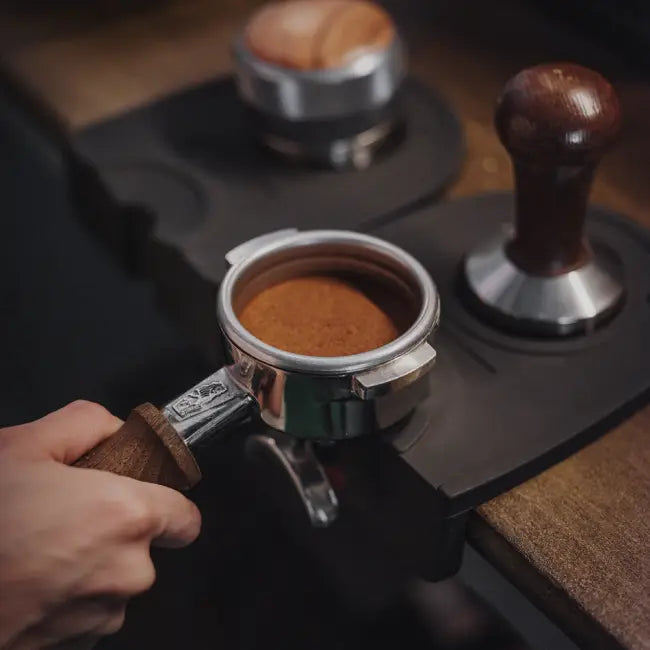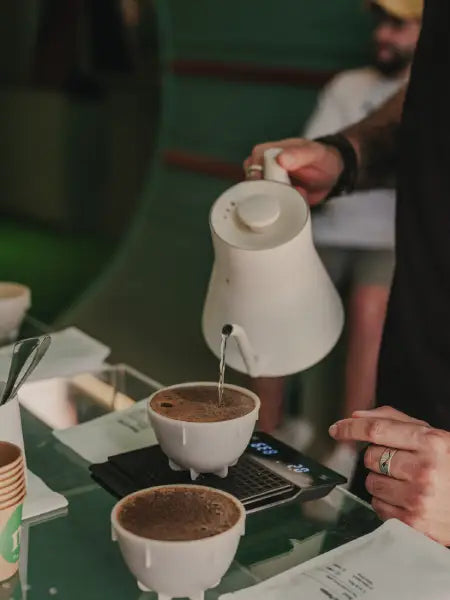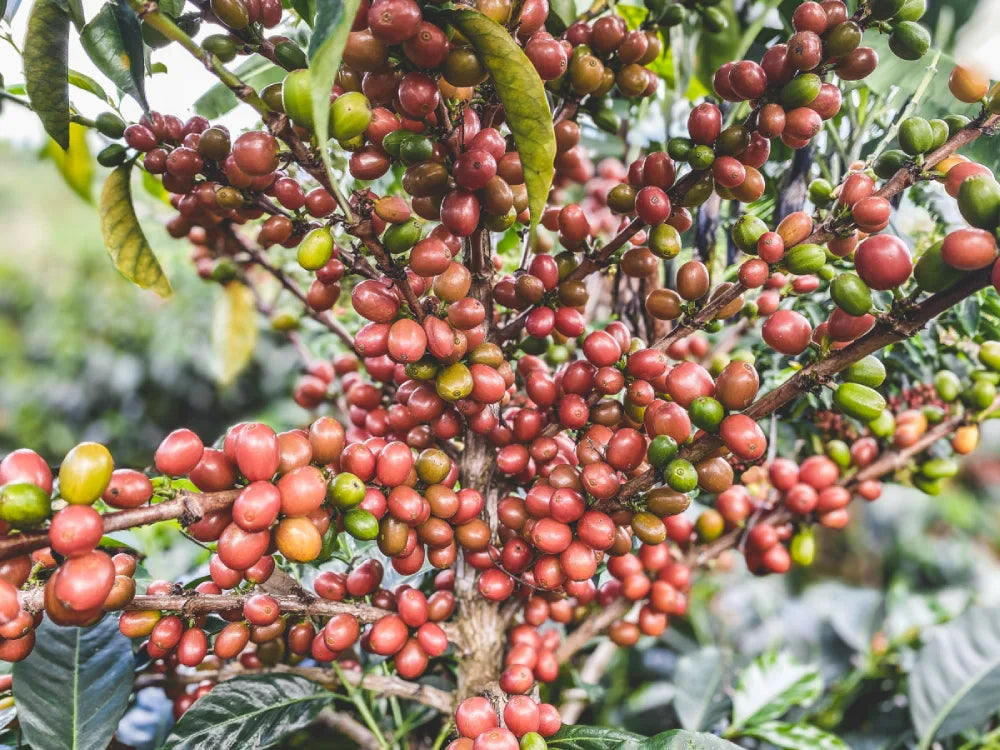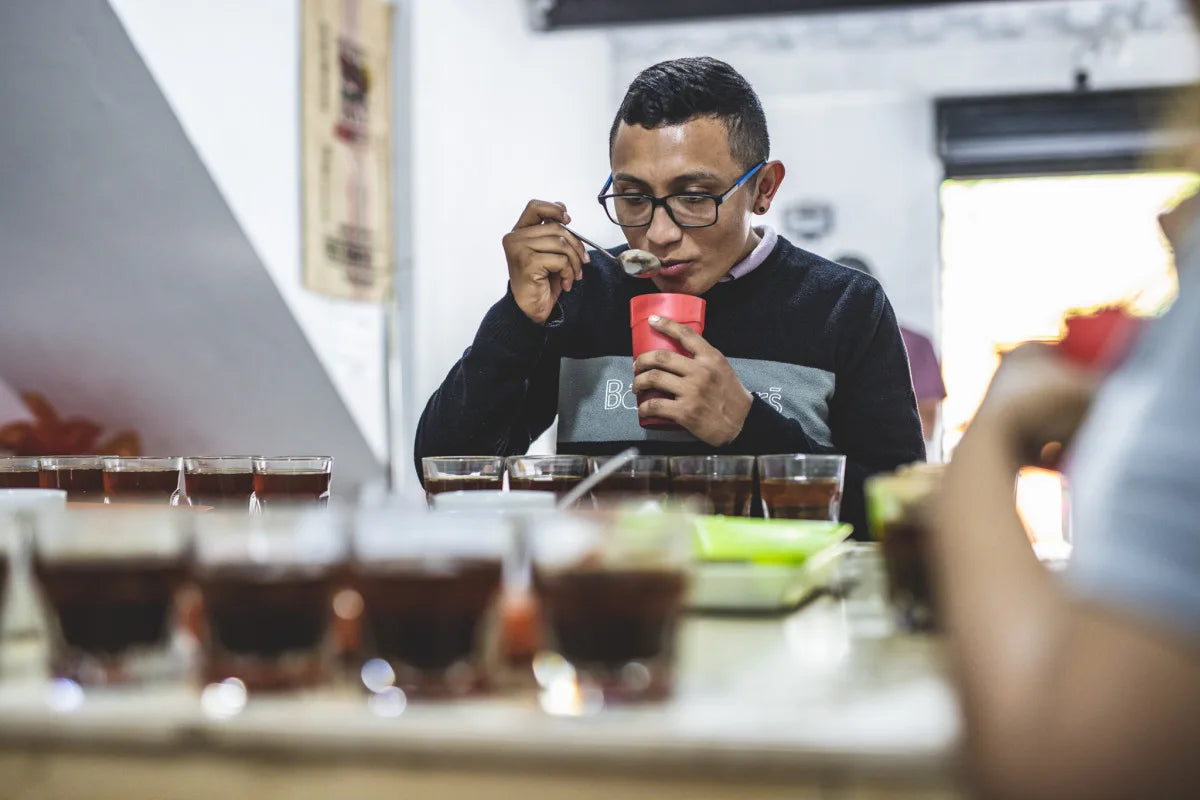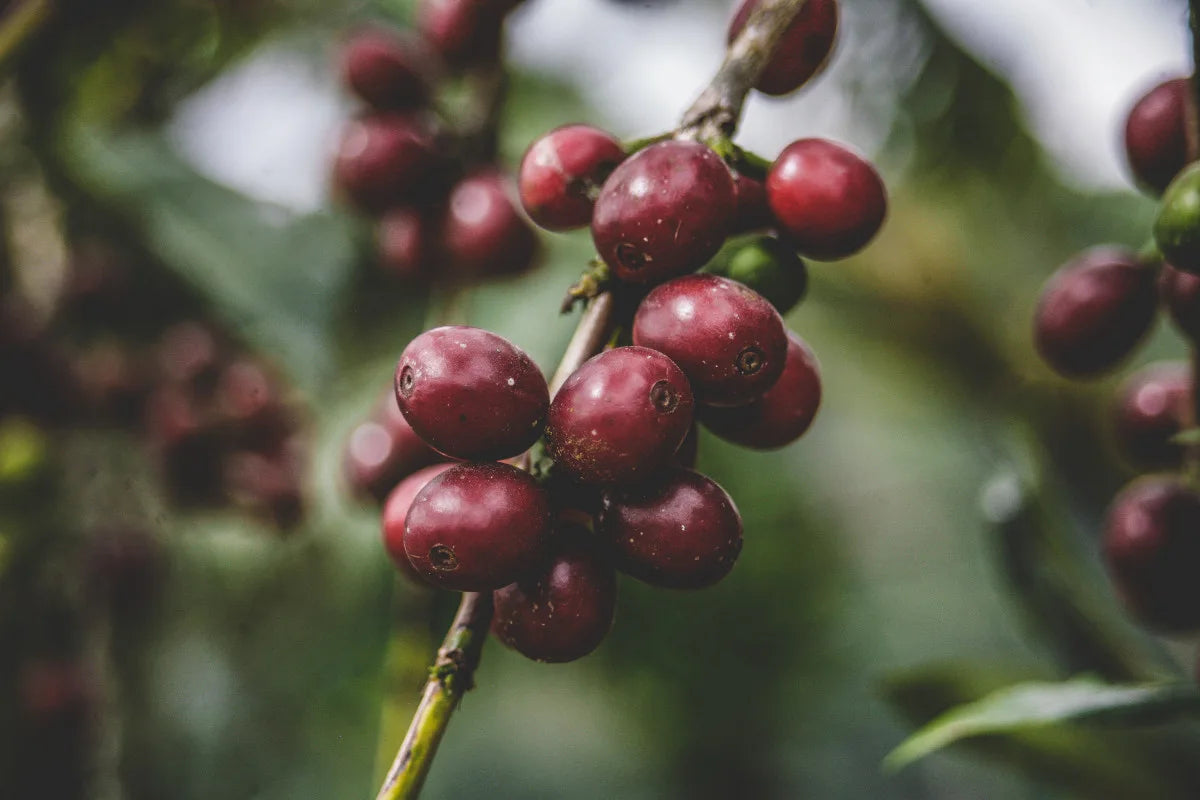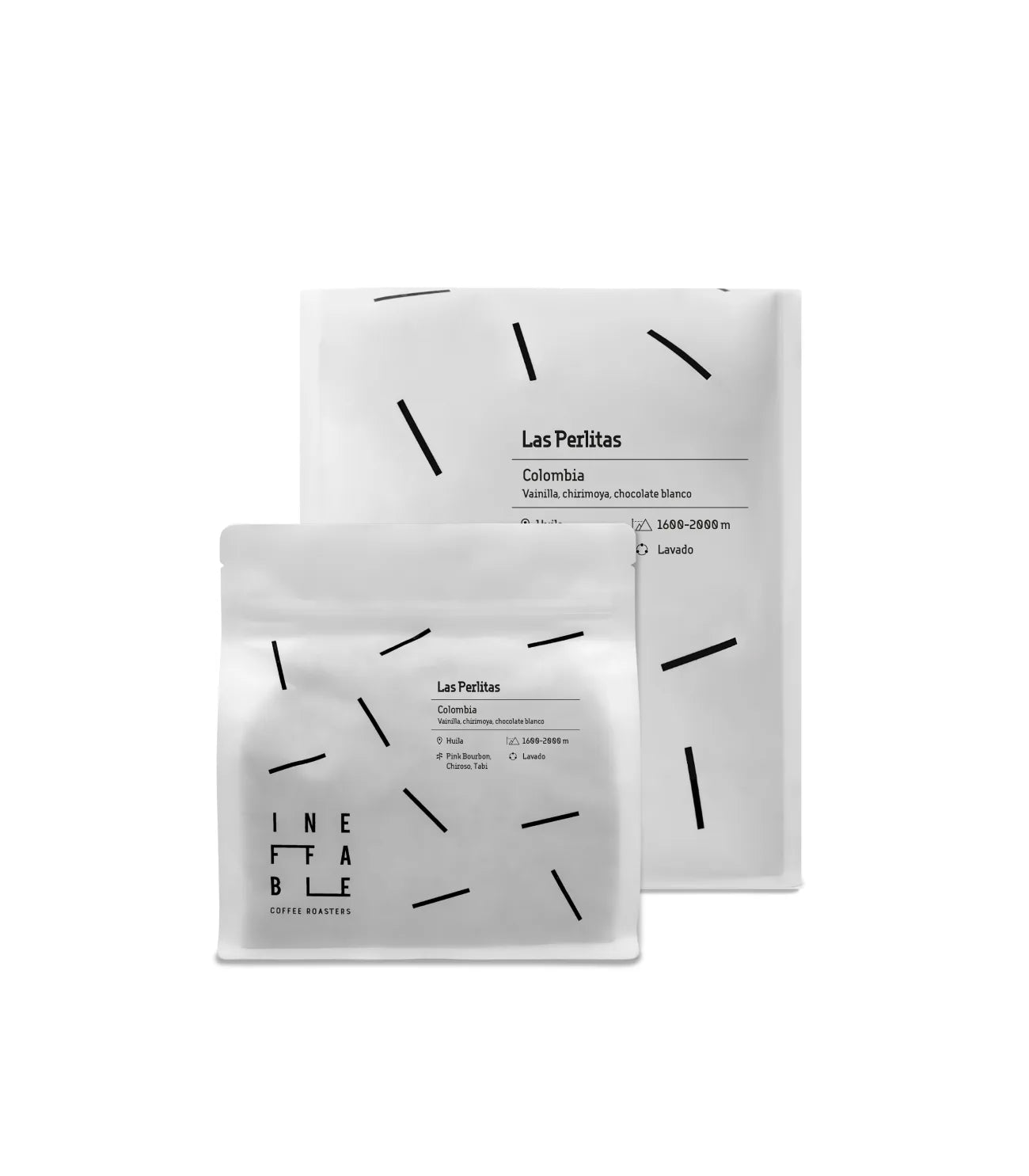
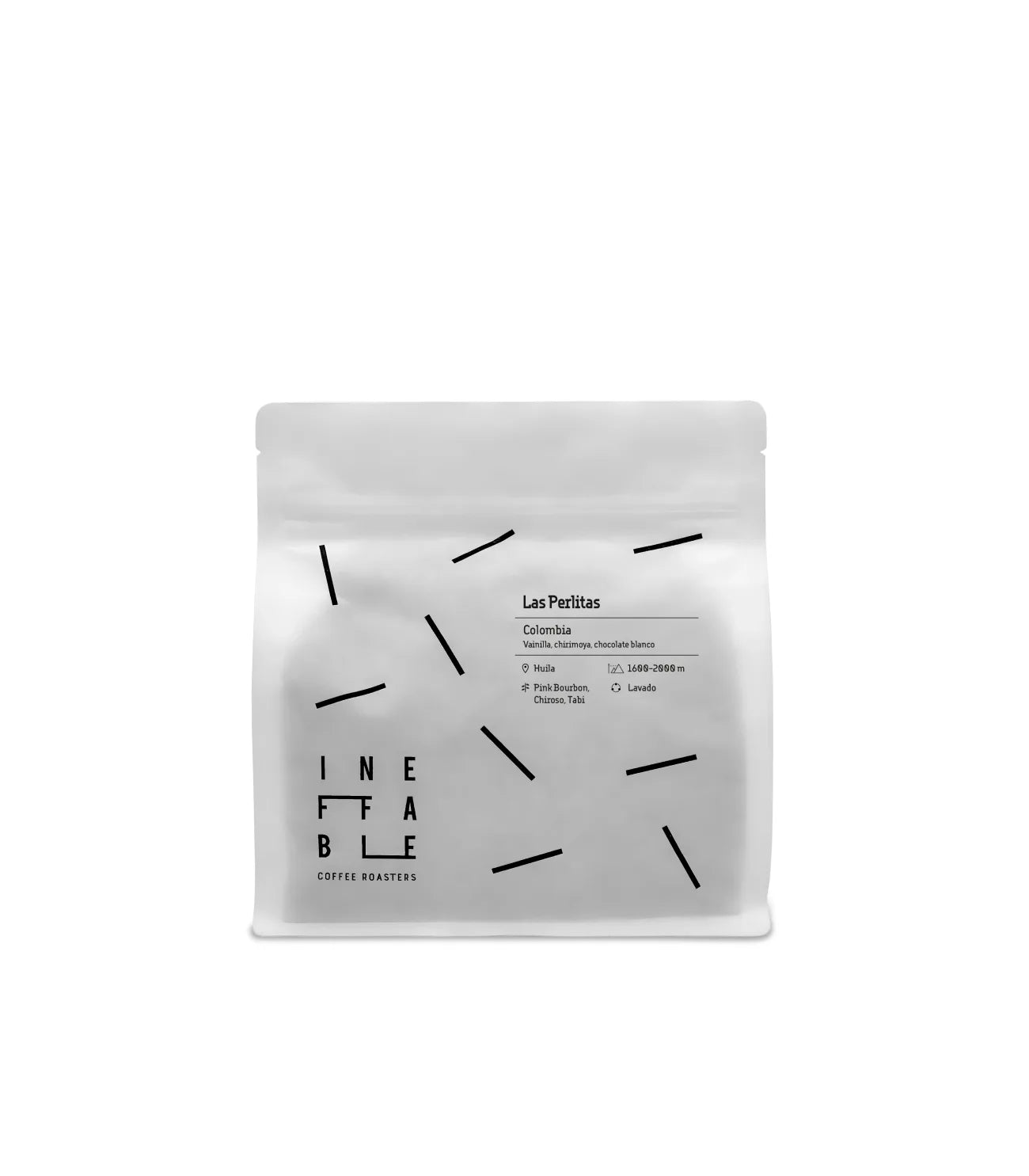
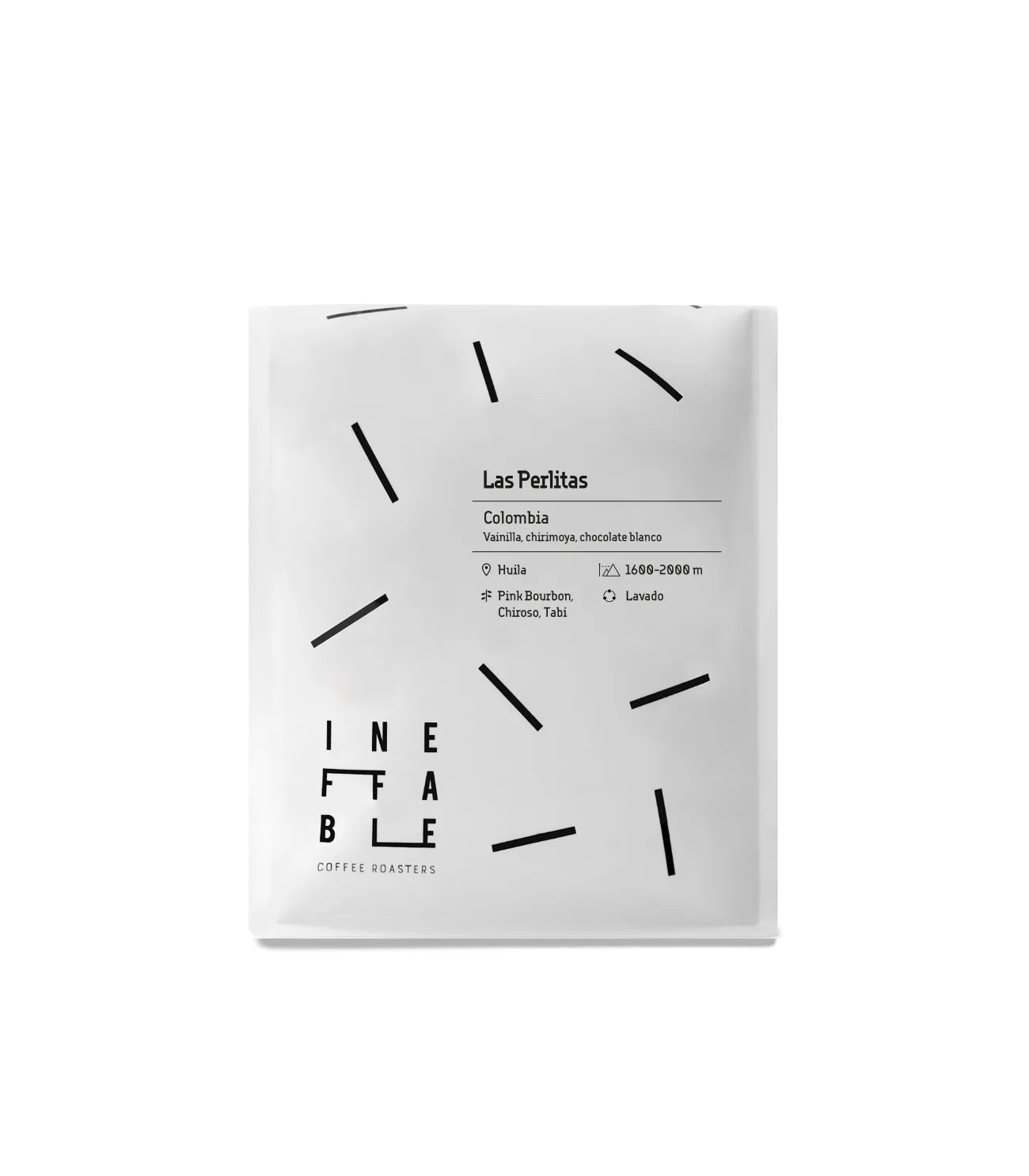


Las Perlitas
Las Perlitas is a specialty coffee from Huila, Colombia, made up of small lots from producers such as Deiro Gasca, Lizardo Imbachi, Erik Bravo, and Delfín Carvajal.
The cup reveals a delicate, aromatic profile with notes of vanilla, cherimoya, and white chocolate. Expect a clean washed coffee that surprises with hints of cherimoya and vanilla, a base of white chocolate and stone fruit, rounded with maple syrup undertones. The finish is medium and fruity, with a bright acidity and silky body.
Details of this coffee
Recommended brewing:
Filter • Espresso
Tasting notes:
Vanilla, custard apple, white chocolate
Processing method:
Washed
100% Arabica botanical variety:
Pink Bourbon, chiroso, Tabi
SCA score:
88
Producer:
Small producers
Region:
Huila
Altitude:
1600 - 2000m.
Harvest:
2025
Origin:
Colombia
Cantidad
Shipping information
FREE SHIPPING
Spain (Peninsula)
>€40 / Delivery 24/48h LV
Balearics
>€40 / Delivery 3-5 days, LV
Portugal
>€40 / Delivery 3-5 days, LV
Europe
>€99 / Delivery 4-7 days, LV
Shipping information
Spain (Peninsula), Balearic Islands and Portugal
- Free shipping on orders over €40 for mainland Spain, the Balearic Islands and Portugal
- For orders under €40, shipping costs are €4.
- We do not ship to the Canary Islands, Ceuta, Melilla, or Gibraltar.
- You will receive a tracking email for all shipments.
- Delivery times are met in 99% of shipments. Please note that we are subject to the smooth operation of our external logistics partners.
- National and/or regional holidays may affect estimated delivery times.
- Delivery to the Peninsula in 24/48 hours, LV.
- Delivery to the Balearic Islands in 3/5 days, LV.
- Delivery to Portugal in 3/5 days, LV.
Europe
- Free shipping on orders over €99, for all orders that include coffee.
- Countries included: Germany, Austria, Belgium, Bulgaria, Croatia, Denmark, Slovakia, Slovenia, Estonia, France, Finland, Greece, Hungary, Ireland, Italy, Latvia, Lithuania, Luxembourg, Monaco, Netherlands, Poland, Czech Republic, Romania and Sweden.
- For orders under €99, shipping costs are €15.
- Delivery in 4-7 days, LV.
- You will receive a tracking email for all shipments.
- Delivery times are met in 99% of shipments. Please note that we are subject to the smooth operation of our external logistics partners.
- National and/or regional holidays may affect estimated delivery times.
- We do not ship to the United Kingdom, Switzerland, the United States, or the rest of the world.
Ineffable Points
Now, with the IneffablePoints points system, you can get the most out of your recurring coffee purchases.
How does it work?
Very simple, with each purchase you will automatically receive:
- 10 IneffablePoints for every €1 spent on coffee orders and subscriptions.
- 1 IneffablePoint for every €1 spent on accessory orders.
How and when can I redeem points?
Visit our IneffablePoints section to see all the coupons available to you:
https://ineffablecoffee.com/pages/ineffable-points
There you can redeem discount coupons or coupons for gift products.
The operation is simple:
- Choose your favorite coupon or discount.
- Generate the coupon.
- Return to your shopping cart.
- On the checkout screen, you'll have a field to redeem the generated coupon.
IneffablePoints are automatically associated with your customer account.
You can check all the information and your IneffablePoints balance at any time by accessing here:
https://ineffablecoffee.com/pages/ineffable-points
Reviews of our product
Fresh seasonal coffee
Freshly roasted in Seville
Eco-Friendly Packaging
Fair price
Caution to producers
Traceability from farm to cup

